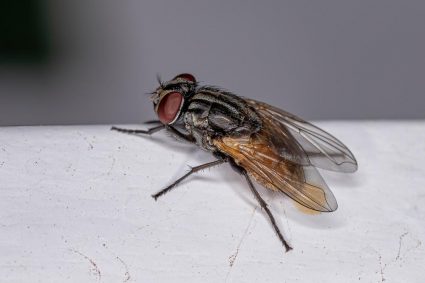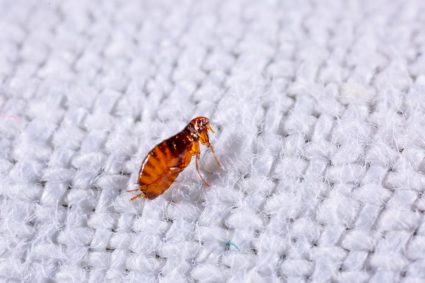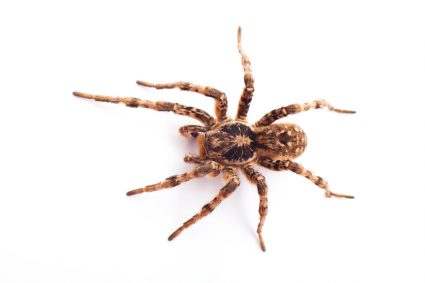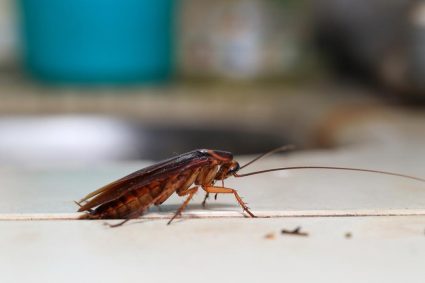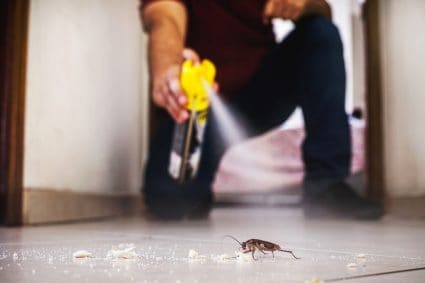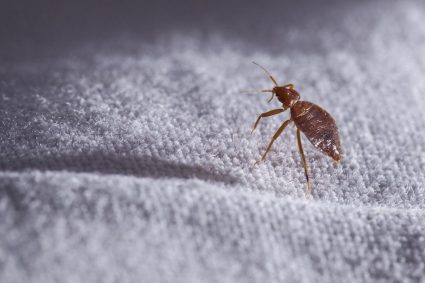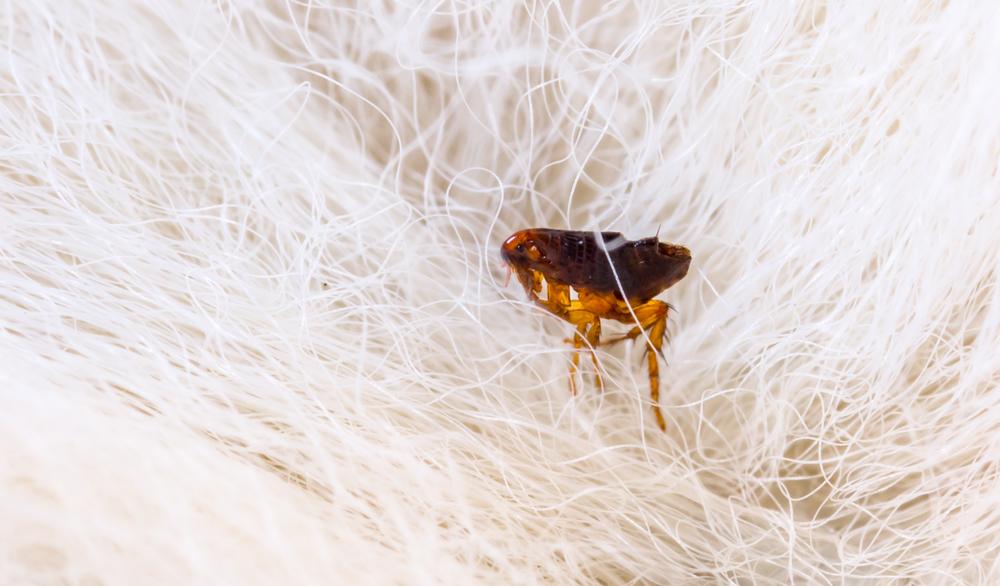
Fleas and ticks are common pests that pose a significant threat to both pets and humans due to the diseases they carry. They can be difficult to control once they infest a home, which is why prevention is key. In this comprehensive guide, we’ll explore various methods and natural ingredients that can help repel fleas and ticks and guide you on how to create a home environment that discourages infestation.
Fleas and ticks can be repelled using various methods, including natural remedies and commercial products. Natural remedies include essential oils like citronella, eucalyptus, and peppermint, diatomaceous earth, vinegar, certain plants, and cedar oil. Commercial products that repel fleas and ticks often contain active ingredients like DEET, picaridin, oil of lemon eucalyptus, and permethrin. Additionally, creating a home environment that discourages infestation and taking preventive measures can help keep these pests at bay.
Natural Remedies to Repel Fleas and Ticks
There are several natural remedies that can help repel these pests. Here are some of the most effective ones:
Essential Oils
Essential oils like citronella, eucalyptus, peppermint, tea tree, and rosemary are known to naturally repel fleas. For ticks, lemongrass, cedar, geraniol, and thyme can be effective. You can dilute a few drops of your chosen essential oil in water and spray it directly onto your pet’s coat or around your home.
Diatomaceous Earth
Diatomaceous earth is a natural insect killer that can eliminate fleas by damaging their exoskeletons and causing dehydration. Sprinkle it around your home, especially in areas where fleas are active.
Vinegar
White vinegar or apple cider vinegar can be used to deal with pests. Mixing vinegar with essential oils like cedar or lavender can make the solution more effective.
Plants
Certain plants like spearmint, chrysanthemums, lavender, and marigolds can naturally repel fleas. Planting these in your garden can help keep fleas away.
Cedar Oil
Cedar oil can kill and repel ticks by causing dehydration, inhibiting breathing, disrupting pheromones, and emulsifying body fats. You can mix cedarwood essential oil with water and spray it around the perimeter of your property.
Commercial Products for Flea and Tick Repellent
While natural remedies can be effective, there are also commercial products available that are specifically designed to repel fleas and ticks. These products often contain active ingredients such as DEET, picaridin, oil of lemon eucalyptus, and permethrin. Some highly recommended products include:
- Safer Home SH51703 OMRI Listed Diatomaceous Earth
- Ultrasonic Pest Repeller (Set of 6-Packs)
- Repel 100 Insect Repellent, Pump Spray
- Natural Flea Spray for Home
- K9 Advantix II (for dogs)
- Adams Flea and Tick Home Spray
- Wondercide Flea, Tick, and Mosquito Spray
- Pet Naturals Flea and Tick Spray
- Repel Tick Defense
- Cutter Backyard Flea Control Spray
- Ortho Home Defense Insect Killer for Lawns
- Vet’s Best Flea and Tick Yard Spray
- Wondercide Ready to Use Flea & Tick Spray
- Ben’s 100 Tick & Insect Repellent
- Natrapel Picaridin Pump 3.4 oz
Remember to always follow the manufacturer’s instructions and consult with a veterinarian for the most appropriate treatment for your pet.
Creating a Flea and Tick-Resistant Home Environment
Preventing flea and tick infestations starts with creating a home environment that discourages these pests. Here are some steps you can take:
- Vacuum regularly to remove eggs, larvae, and adult fleas.
- Steam clean carpets to kill fleas in all stages of their life cycle.
- Wash pet and family bedding every two to three weeks in hot, soapy water.
- Maintain your yard by mowing your lawn regularly, removing leaf debris, pruning shrubs, and keeping ground covers to a minimum to reduce tick habitats.
- Use natural repellents like essential oils and flea-repelling plants.
Preventive Measures Against Fleas and Ticks
Prevention is always better than cure when it comes to dealing with fleas and ticks. Here are some preventive measures you can take:
- Limit your pet’s outdoor time and avoid contact with wild or stray animals.
- Bathe and brush your pets regularly.
- Check your pets for fleas and ticks daily.
- Talk to your veterinarian about flea and tick control products suitable for your pet.
- Treat your pets for fleas year-round.
- Keep your home clean by vacuuming and washing your pet’s bedding often.
- Maintain your yard by mowing the lawn and removing leaf debris to reduce flea and tick habitats.
Conclusion
Fleas and ticks can pose a significant threat to both pets and humans, but with the right preventive measures and treatments, you can keep these pests at bay. Whether you choose natural remedies or commercial products, the key is to stay vigilant and proactive in your efforts to repel these pests.
Frequently Asked Questions
How often should I spray essential oils to repel fleas and ticks?
The frequency of spraying essential oils can vary depending on the severity of the infestation. As a preventive measure, you can spray them once a week. However, during peak flea and tick season, or if you’re dealing with an infestation, you may need to spray them daily.
Can I use all these natural remedies together for a more effective result?
Yes, you can combine these natural remedies for a more comprehensive approach to flea and tick prevention. However, it’s important to observe your pet’s reaction to these remedies, as some animals may have sensitivities or allergies to certain ingredients.
Are these natural remedies safe for all pets?
While these natural remedies are generally safe, some pets may have allergic reactions to certain substances like essential oils. It’s always recommended to consult with your veterinarian before introducing any new substances or remedies to your pet’s environment.
Can I use commercial products and natural remedies simultaneously?
Yes, you can use commercial products and natural remedies at the same time. However, it’s important to ensure they do not interfere with each other. For instance, using a commercial flea collar along with essential oils on your pet’s coat may cause irritation.
Can fleas and ticks become resistant to these remedies over time?
Fleas and ticks can develop resistance to certain chemical treatments over time, but they are less likely to become resistant to natural remedies. However, it’s always advisable to rotate your methods of prevention and treatment to ensure effectiveness.
What should I do if my pet has a severe infestation of fleas and ticks?
If your pet has a severe infestation, it’s essential to consult a veterinarian immediately. They can provide appropriate treatments and guide you on how to manage the infestation in your home.
Are these remedies effective against all types of ticks?
These remedies can help repel many common types of ticks, including deer ticks and dog ticks. However, their effectiveness may vary depending on the species of ticks present in your area. Always consult with a pest control professional or a veterinarian for advice tailored to your specific situation.

